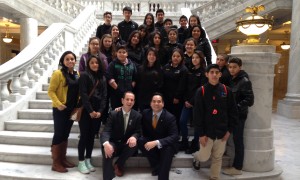I believe that as individuals and as a society we have an obligation to help the most vulnerable among us. However, the question of who should be helped and how is one of the most difficult issues facing state government. Here are some of my guiding principles on this issue.
1. Private or Public? Private solutions are likely to be more effective and more efficient than government programs at meeting the needs of the most vulnerable. Whether we are talking about the concern of individuals for family members and neighbors or the efforts of private organizations with charitable missions, voluntary actions are better than using the power of government to redistribute wealth and resources. It is appropriate for government to provide incentives and support for private charitable actions.
2. Handout or Hand Up? To the extent that government programs may be necessary to supplement voluntary private actions, assistance should be wherever possible a hand up and not a handout. The primary concern of government assistance should be in removing barriers to self-reliance and providing access to resources that will help those in need to return to productive, self-sustaining activities. The best programs will also preserve or enhance incentives for engaging in these activities.
3. Entitlement programs – Entitlement programs are government programs where individuals qualify for access to resources or services based on specified circumstances (such as being below a pre-defined income level). These programs are by their nature inefficient because they rely only on rigid measures and do not take into account true needs nor are they particularly effective in addressing the underlying problems that individuals face. Modern entitlement programs often include disincentives for individuals to seek additional or better employment. Federal eligibility guidelines cast a broad net requiring states to spend significant amounts of money on those with little need.
4. State vs. federal – Given the chance, states would design more effective programs to meet the needs of their citizens than the federal government and would do so at a lower cost.
5. Individual responsibility – Individuals are primarily responsible for their welfare and the welfare of their children. They are also free to make important decisions that impact their welfare including decisions about education, employment, housing, nutrition, and health, and they should be subject to the positive and negative consequences of those choices. Government programs should not attempt to absolve individual responsibilities or remove the consequences of their choices.



